Trucking companies may use advertising, job postings or connections to recruit future employees, but many female truck drivers are discovering an unexpected recruitment tool at hand: TikTok.
The video-driven social media app has allowed women in the truck driving industry to showcase the behind-the-scenes of their field. In 60-second bursts, TikTok truckers can speak on the nitty gritty of the trucking industry — gas prices, traffic run-ins, tips and tricks, and the commitment involved.
Clarissa Rankin, a truck driver and motivational speaker, takes to TikTok to speak about those issues and more, allowing her 1.3 million followers to see an approachable side to trucking.
Rankin started using TikTok after trying social media platforms like YouTube, Instagram and Snapchat to share her message. When TikTok came around, she decided to test her platform on the app, and her first video went viral. Since then, she’s set a goal to shift the stereotypes of minorities and female truck drivers through her videos.
“One of my main goals was just to get the word out there and to open up the door for female truck drivers,” Rankin said. “(I wanted to) let people know that we are doing this. We are beautiful, we do have the hair, the nails, (we can) be mothers and wives and we can be truck drivers. That’s what I really wanted to do is to just uplift the trucking community with a little female sass.”
That “sass” comes through in Rankin’s videos, resonating with many Black women and minorities.
Rankin says one of her TikTok goals is to overturn the “stereotypes of a mad Black woman.”
“Some many times on television, we get overshadowed with drama and negativity, and I’m so tired of that. I’m not that person,” she said. “I want to be uplifting and show that we can be positive and fun and vibrant. I want to show that we are all wonderful people and just bring that to life.”
Rankin is an owner-operator along with her husband, Joey. The two opened up their own company, JC Rankin, just one year after she finished CDL training.
“Everything I’ve done in the trucking community so far was from following a dream that I had initially to take a leap at,” she said of her successes as an owner-operator.
One of her main messages on TikTok is just that — encouraging others to follow their dreams.
With her pastel blue and pink hair and eyebrows dyed to match, Rankin does this while connecting her followers to accessible CDL schooling and job resources.
Other TikTok truckers have a similar goal to showcase the female flipside of the industry while sharing the positives and realities of the truck driving life.
“Yeah, it’s a male-dominated industry, but I want to show women who are single mothers that you can do it,” said Brenda Villanueva, a single mother and a truck driver for Mendoza Trucking. “(During) my whole pregnancy and after I had my daughter, I honestly thought that when I got pregnant, it was like my life was over.”
Instead, trucking provided Villanueva a way to provide financial supported for her daughter — although her path proved to be bumpy. When she started interviewing for trucking jobs, she repeatedly heard, “I don’t think you can do it because there’s a lot of labor. You know, there are places where the pallets are taller than you.”
“I would be judged a lot because of my size,” she said.
With endurance and help from her mother, Villanueva started at Mendoza Trucking knowing that other women can face the same challenges. When COVID-19 hit, she started a TikTok page in hopes of easing those concerns and providing empowerment for other women.
“I think it really makes a difference because we’re showing the actual perspective of trucking,” Villanueva said. “Everybody thinks that truck drivers sit and drive, but that’s not (all). There’s more to being a truck driver.”
In turn, her stories and advice shared through TikTok have led to other women finding employment as truck drivers as well as spurring curiosity about the field. More than a year and 343,000 followers after making that first TikTok post, Villanueva’s videos have motivated others to get into trucking school or their family in the business.
“I just want to empower women to want to (get into trucking),” she said. “I feel like a lot of women are discouraged (from trucking). How do you know you can’t do it until you try?”
A study conducted by the Women in Trucking Association (WIT) found that women made up more than 10% of U.S. truck drivers in 2019. That’s a 30% increase from 2018.
“The trucking industry not only has a serious driver shortage issue, but a major image problem,” said Ellen Voie, president and CEO of WIT. “The Women In Trucking Association recently joined TikTok and sees the platform as an opportunity to raise the visibility of professional driving as a rewarding career path for women, give an inside look into the driver experience, shine a positive light on the industry, share best practices and tips, and ultimately tap into the Gen Z and millennial generations. Hashtags like #ladytrucker and #femaletrucker each have over 130 million views. When women see other female TikTokers succeeding in this industry, it shows that they can do it too.”
The hashtag #womenintrucking now has more than 6 million views and counting.
By talking about career opportunities, the realities of sexism, sexual harassment, hygiene, personal and highway safety, women trucker TikTok influencers can send the message that the issues are real — but at the same time, they have a positive purpose, according to a press statement from John Kearney, CEO of Advanced Trainer Solutions.
“The overwhelming message from the influencers is that they can be dealt with — and here’s how,” Kearney said.
Hannah Butler is a lover of interesting people, places, photos and the written word. Butler is a former community newspaper reporter and editor for Arkansas Tech University’s student newspaper. Butler is currently finishing up her undergraduate print journalism degree and hopes to pursue higher education. Her work has been featured in at least nine different publications.




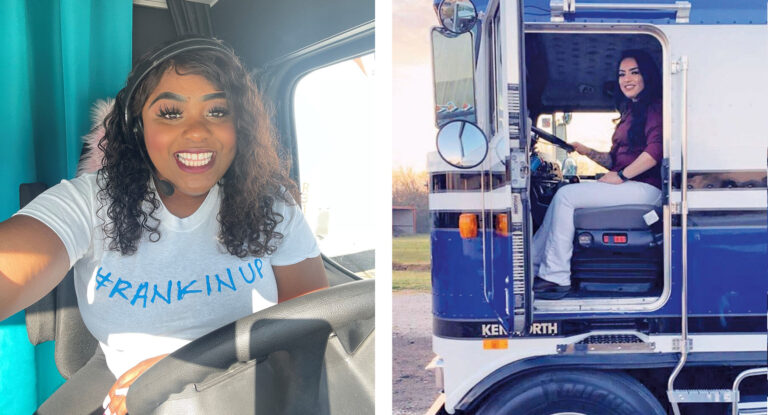

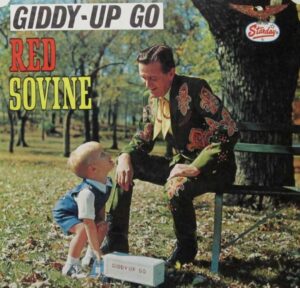

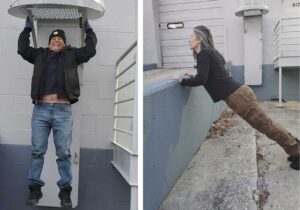
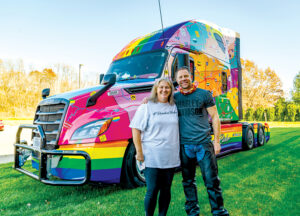
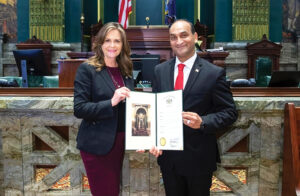

Clarissa’s story is inspirational and refreshing in an industry that is still mostly lead by good ole boys who continue to wring their hands in panic over the “driver shortage” and yet do little to recruit young people. They fail to embrace modern social media. The big carriers and their associations need to take note and thank and support people like Clarissa, who one her own, is doing they need to do.
Thanks for the story Hannah.